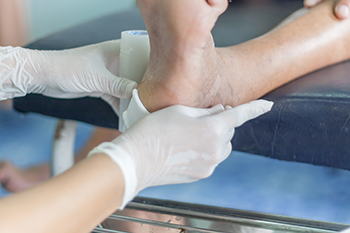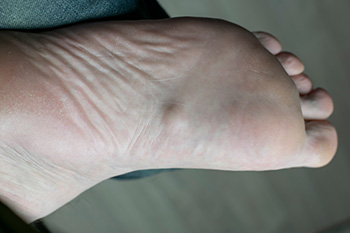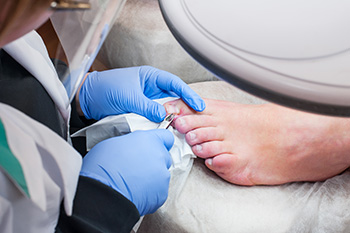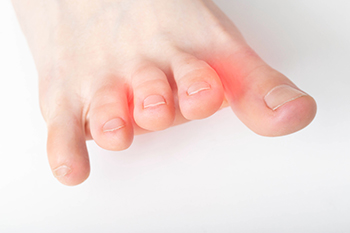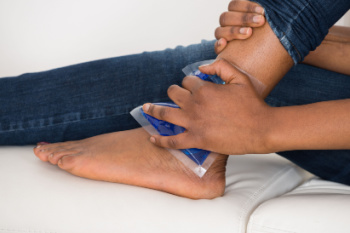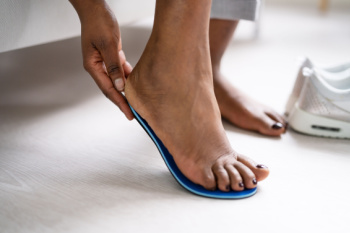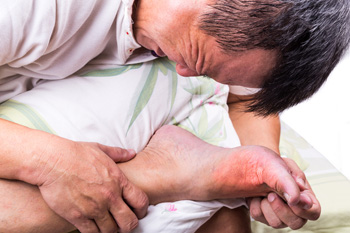
Custom foot orthotics are an effective treatment for reducing first-step pain in people with unilateral plantar fasciopathy, a painful condition that affects one foot. This affliction involves the thick band of tissue known as the plantar fascia on the bottom of one foot, usually causing discomfort in the heel or arch, especially with the first steps after rest. Custom orthotics are designed to fit the specific shape and needs of the affected foot, offering better support and cushioning. By providing targeted support to the arch and heel, orthotics reduce the strain on the plantar fascia, the ligament causing the pain. This helps to ease discomfort, especially during the first steps of the day. Unlike generic insoles, custom orthotics are tailored to the individual's foot, improving alignment and reducing stress on the fascia. Over time, they can significantly improve pain levels and help prevent the condition from worsening. If you have heel pain, in one or both feet, it is suggested that you schedule an appointment with a podiatrist for a diagnosis and treatment, which may involve prescribing custom orthotics.
If you’re experiencing foot discomfort, have a history of foot and ankle injuries, or are interested in exploring Custom orthotics, don’t hesitate to contact one of our podiatrists at Biebel & DeCotiis Podiatry Associates. Our doctors is dedicated to offering the care required to help you remain pain-free and stay on your feet.
What are Custom Orthotics?
Custom orthotics refer to custom inserts designed for placement in different shoe types, including athletic and formal footwear, with the purpose of alleviating a spectrum of foot-related problems such as flat feet, heel pain, and overall foot discomfort. These inserts are instrumental in providing relief and comfort for a diverse range of foot conditions, including heel pain, and can also act as a proactive approach to injury prevention.
Medical Grade Shoe Inserts:
A diverse array of shoe inserts is available for addressing foot pain, heel discomfort, and minor issues. For instance, you can place arch supports in your shoes to rectify overarched or flat feet, and gel and cushioned insoles are frequently chosen for the comfort and relief they provide from foot and heel pain by reducing pressure.
If you have any questions please contact one of our offices located in Holmdel and Middletown, NJ . We offer the newest diagnostic and treatment technologies for all your foot and ankle needs.
